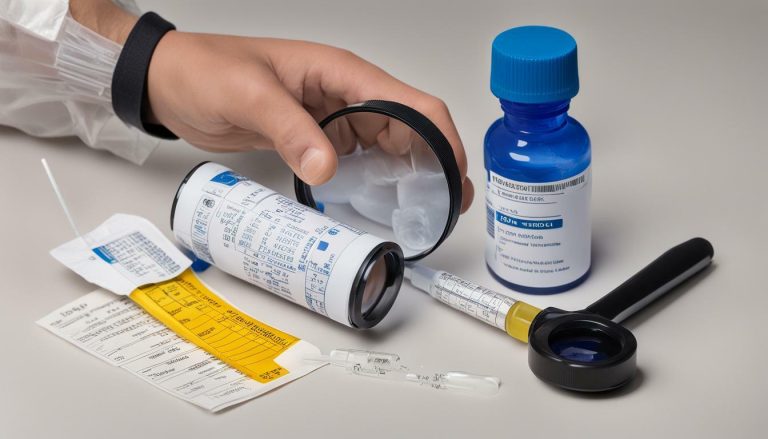Why Do Steroids Cause Insomnia? Understanding the Link.
For many Australians, it is not uncommon to experience sleep disturbances, including insomnia. However, some individuals may find that their sleep problems coincide with steroid use. This connection has raised many questions about why steroids cause insomnia, and what can be done to manage it.
In this section, we will explore the mechanisms that contribute to steroid-induced insomnia. By understanding the link between steroids and sleep problems, individuals can take steps to manage the impact of steroids on their sleep.
Key Takeaways:
- Steroid use can contribute to sleep disturbances, including insomnia.
- Understanding the mechanisms that lead to steroid-induced insomnia can help with management and prevention.
The Impact of Steroids on Sleep Patterns
When taking steroids, it’s not uncommon to experience sleep disturbances. Insomnia can be a side effect of steroid use and can have a significant impact on an individual’s quality of life. In this section, we will explore the specific mechanisms through which steroids affect sleep and contribute to insomnia.
Steroids can disrupt normal sleep patterns by altering the body’s natural hormone levels. The synthetic hormones found in steroids can interfere with the production of melatonin, the hormone responsible for regulating sleep-wake cycles. This disruption can lead to difficulty falling asleep, staying asleep, or achieving deep sleep.
Furthermore, steroids can also increase levels of the stress hormone cortisol, which can make it harder to fall asleep and stay asleep. Elevated levels of cortisol can also cause sleep to be less restful and restorative, leaving individuals feeling fatigued and lethargic throughout the day.
The duration and dosage of steroid use can also impact sleep quality. Prolonged use of steroids can lead to the development of steroid-induced insomnia, which can persist even after the individual stops taking steroids. Additionally, higher doses of steroids can exacerbate sleep disturbances and increase the likelihood of experiencing insomnia.
Individual sensitivity to steroids can also play a role in the development of steroid-induced insomnia. Some people may be more susceptible to the sleep-disturbing effects of steroids than others. Factors such as age, gender, and overall health can also impact an individual’s response to steroid use.
In conclusion, steroids can have a significant impact on an individual’s sleep patterns, leading to insomnia and other sleep disturbances. The disruption of natural hormone levels, the increase in cortisol, and the duration and dosage of steroid use can all contribute to the development of steroid-induced insomnia. By understanding these mechanisms, individuals can take steps to help mitigate the impact of steroid use on their sleep.
Factors Influencing Steroid-Induced Insomnia
Insomnia as a result of steroid use can be influenced by various factors. These factors include:
- Dosage: The amount of steroids taken can affect sleep quality. Higher dosages may lead to more significant disruptions to sleep patterns.
- Duration of use: The longer a person takes steroids, the more likely they are to experience sleep disturbances as a result.
- Individual sensitivity to steroids: Some people may be more sensitive to the effects of steroids on sleep than others. Factors that can influence sensitivity include age, sex, and overall health.
It is important to note that not everyone who takes steroids will experience insomnia. However, these factors can increase the likelihood of experiencing sleep disturbances when using steroids.
Some individuals may be able to manage their sleep issues through lifestyle changes, while others may need to adjust their steroid use or seek medical assistance. It is crucial to speak with a healthcare professional if you are experiencing ongoing sleep disturbances while taking steroids.
Managing Steroid-Related Sleep Issues
Managing sleep issues caused by steroid use is key to maintaining overall health and wellbeing. Here are some practical tips and strategies that can help:
Establish a sleep routine
Creating a consistent sleep routine can help signal to your body when it’s time to wind down and sleep. Try going to bed and waking up at the same time each day, even on weekends. Avoid stimulating activities before bed, like using electronic devices or watching TV, and instead engage in relaxing activities like reading a book or taking a warm bath.
Create a sleep-friendly environment
Your sleeping environment can have a significant impact on the quality of your sleep. Make sure your bedroom is cool, quiet, and dark. Invest in comfortable bedding and a supportive mattress. Minimize noise and light disruptions by using earplugs, curtains, or a white noise machine if necessary.
Explore relaxation techniques
Relaxation techniques like meditation, deep breathing, or yoga can help reduce stress and promote relaxation. Incorporate these techniques into your daily routine, especially before bed, to help calm your mind and body and prepare for sleep.
Consult with a healthcare professional
If your sleep disturbances persist, it may be beneficial to consult with a healthcare professional. They can provide further guidance on managing steroid-induced insomnia and assess whether any other underlying factors may be contributing to your sleep issues.
Conclusion
Insomnia caused by steroid use is a well-known side effect that can be both frustrating and concerning. By understanding the mechanisms that lead to steroid-related sleep disturbances, individuals can take proactive steps to mitigate their impact.
We have explored the link between steroids and insomnia, delving into the ways in which steroids can disrupt normal sleep patterns. We have also discussed the factors that can influence the severity of steroid-induced insomnia, including dosage, duration of use, and individual sensitivity to steroids.
If you are experiencing ongoing sleep disturbances as a result of steroid use, it is important to seek professional guidance. Your healthcare provider can help you develop a personalised plan for managing these issues.
Overall, by understanding the link between steroids and sleep problems, Australians can take control of their health and wellbeing, ensuring that they get the restful, restorative sleep they need to live a healthy, active lifestyle.







